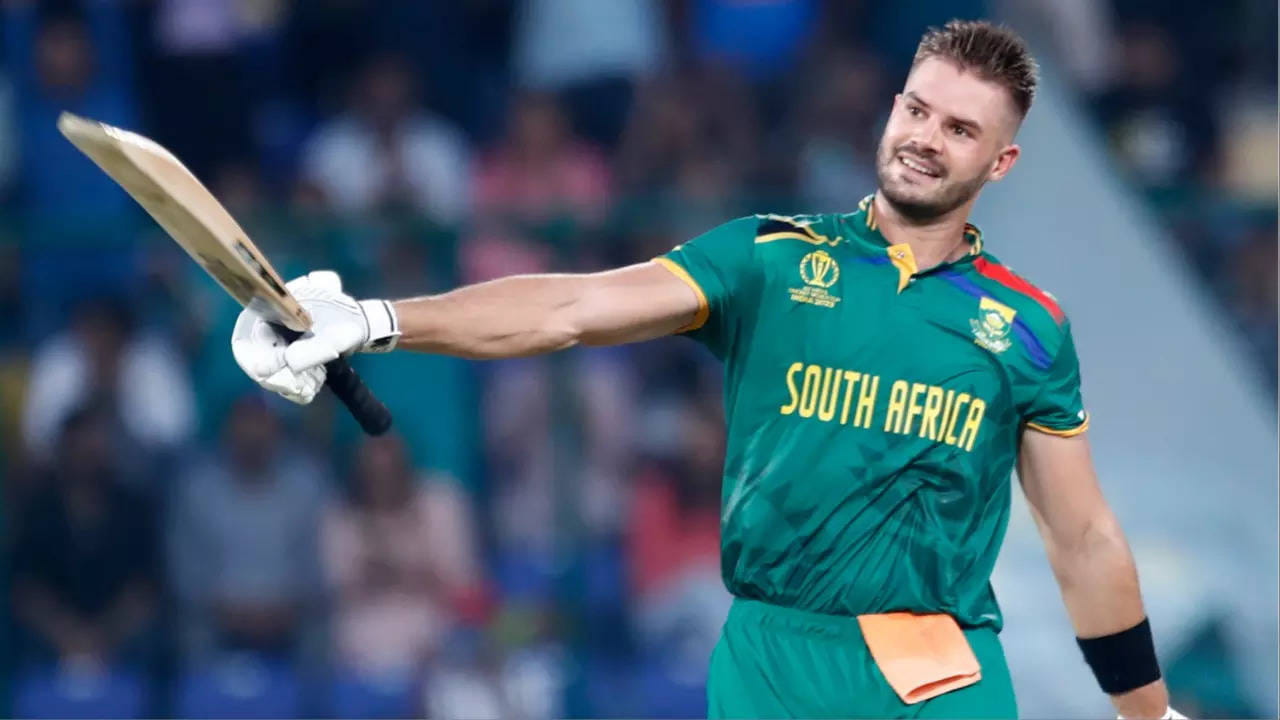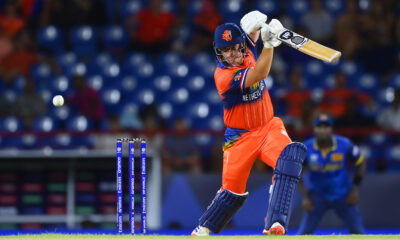
Sport

Pressure on for Proteas in Cricket World Cup
Former Proteas cricketer Adam Bacher has “a strong feeling about our Proteas” at the ongoing Cricket World Cup in India.
South Africa started the tournament with a 102-run win against Sri Lanka in a scorching Delhi. The Proteas’ total of 428/5 and the fact that they had three centurions in one innings were both World Cup records. Plus, Aiden Markram scored the fastest World Cup 100 (off 49 balls). The Proteas then hammered Australia by 134 runs before being given a 38-run hiding by the Netherlands.
“South Africa has an exceptionally strong top seven, with three or four potential match winners,” says Adam, who made his Test debut against India. “The question is how we’ll cope with the pressure, and can our bowlers do a decent job? If a Heinrich Klaasen, David Miller, or Aiden Markram can win player of the tournament, we’re in with a chance. Marco Jansen can also make a huge impact with both bat and ball.”
Former Proteas Ali Bacher and Dennis Gamsy aren’t as optimistic about the Proteas’ chances.
Ali, the chief executive of the 2003 Cricket World Cup in South Africa, is eager to see how the Proteas batters fare against top sides. “Our batting is inconsistent and vulnerable. That’s my worry about our team. Our bowlers are good, but if you want to be a top team in world cricket, your top six batsmen should all have the potential to score 100.”
Ali went on to recall the Proteas’ past World Cup heartbreaks. “We had a good team in 1996. We got to the quarterfinals, and the West Indies knocked us out. In 1999, we were the best team in the World Cup. We played Australia in the semi-final. It was a tied match, but they went through on a technicality to the final, and won it.
“Then in 2015, we played a semi-final with a lot of rain around, and it hampered our team more than New Zealand because when we were bowling, the ball was so soggy and wet. No bowler of note can make that type of ball move around. So, they beat us but weren’t the best team.”
Comparing the current Proteas squad to the national squads he was part of between 1996 and 2005, Adam says, “There are pros and cons to each squad. The squads I played in had some of the best bowlers and definitely the best all-rounders in the world. Think of Jacques Kallis, Lance Klusener, and Shaun Pollock. Now, we’re faced with a squad that is really battling to find a match-winning all-rounder.
“The current squad has in its favour some of the most destructive batters. Markram is now showing his real potential, and adds so much to our batting balance. Any of our top six can be a potential match-winner on the day. I’m not sure this squad is as good in the field as our squads were. This is a crucial element.”
Ali says this year’s tournament is in India’s winter because it’s too hot in summer. “I’ve been there in winter and in the morning, there’s quite a lot of dew on the fields, so the fast bowlers sometimes get a lot out of the pitch. But then it evens out.”
Ali concludes that playing in India is difficult. “The great Steve Waugh never won a series in India,” he says, pointing out that India is difficult to beat at home because of its vociferous supporters. “You’ve got to be there just to believe the impact they have on a particular match,” Ali says.
On top of this, Adam says, “India probably has the best all-round team.”
However, Ali’s favourites to win the title are New Zealand, especially after they walloped England in the opening match. “My number two is Australia, who are always good for World Cups. Their bowling attack is probably the best in world cricket.” Ali won’t write off England, but says they will be much better if their “superstar Ben Stokes” returns from injury.
Gamsy also names the aforementioned countries and Pakistan as contenders for the trophy.
Although the Cricket World Cup didn’t exist during Gamsy’s playing days, a Jewish South African who is involved in this year’s World Cup is Afghanistan fielding coach Ryan Maron. He has been involved with the Afghanistan and West Indies national teams intermittently since 2014. Among many other sporting achievements, he played cricket for the Western Province in the late 1990s, and played alongside Adam in the South African cricket side that won gold in the 2005 Maccabiah.
India itself has Jewish cricketers, notably Bensiyon Morisbhai Songavkar, who played first-class and List A cricket in India. He played well at the Maccabi Games, and was included in an Israel squad that played against India in honour of Israel’s 60th anniversary.
Sadly, Mumbai’s small Jewish community is currently in mourning after two Jewish brothers, Alan and Israel Vasker, who played for India at the Maccabi Games, drowned in a river in August.
On another sad note, Bacher believes that this year’s tournament will be the last 50-over Cricket World Cup.
His conviction is based on India cricket legend Sachin Tendulkar recently saying the 50-over game is “becoming too predictable”.
Adam, who ironically took a spectacular catch to dismiss Tendulkar in 1996, agrees, especially because of the predictability of games played on the sub-continent where pitches can be too flat.
“I find watching this kind of cricket boring and too much in favour of the batsman. I have said for some time that the two best formats are Test cricket and T20. I don’t think 50-over cricket will survive.”
As a wicketkeeper, Gamsy had a different view to normal fielders like the Bachers and Tendulkar, and the same can be said about his view of the future of the Cricket World Cup. “Sport is driven by money, and as long as they’re making money out of a World Cup, I don’t think it has a life-ending span,” he says.










